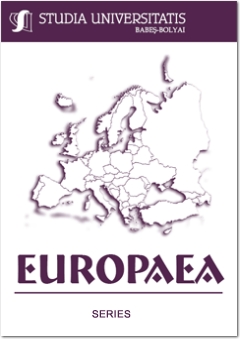ENGAGING THE POLITICS OF NGO HUMAN RIGHTS ADVOCACY: A CRITICAL READING OF AMNESTY INTERNATIONAL’S MEMORANDUM TO THE ROMANIAN GOVERNMENT CONCERNING ...
ENGAGING THE POLITICS OF NGO HUMAN RIGHTS ADVOCACY: A CRITICAL READING OF AMNESTY INTERNATIONAL’S MEMORANDUM TO THE ROMANIAN GOVERNMENT CONCERNING ...
Author(s): Leyla Safta-ZecheriaSubject(s): Economy
Published by: Studia Universitatis Babes-Bolyai
Keywords: human rights; mental health; deinstitutionalization; advocacy; voice; Amnesty International; Romania.
Summary/Abstract: The present paper takes as its starting point the Amnesty International memorandum to the Romanian government concerning in-patient psychiatric treatment issued in May 2004 in order to offer a critique of the politics inherent to the human rights discourse regarding mental health care treatment in Romania. Issued just briefly before EU-accession, the memorandum had strong discursive effects, which challenged the monopoly of doctors over defining issues of psychiatric treatment. The paper looks at the memorandum from three angles: (1) investigating the linguistic manufacturing of systemic human rights violations, (2) the practice of objectifying institutionalized people and voicing claims on their behalf, as well as (3) obscuring structural issues of social and economic inequality that lead to the institutionalized of the “newly” poor. The three issues for critique are interrelated: through the linguistic manufacturing of a systemic human rights problem, the legitimacy of a claim to an unacceptable state of affairs is fabricated. This claim is in its term made on behalf of and about institutionalized people, and not elaborated together with them. Moreover, in the terms of the claim, people are reduced to instances of suffering and thus re-enforce AI’s narrative, which references and replicates international human rights standards. Finally, institutionalized people are not only deprived of a voice in this process, they are also targeted by a political project that views them primarily with the lens of their right to freedom and obscures an understanding of their condition in terms of its economic and social reality.
Journal: Studia Universitatis Babes-Bolyai - Studia Europaea
- Issue Year: 60/2015
- Issue No: 1
- Page Range: 73-96
- Page Count: 24
- Language: English

